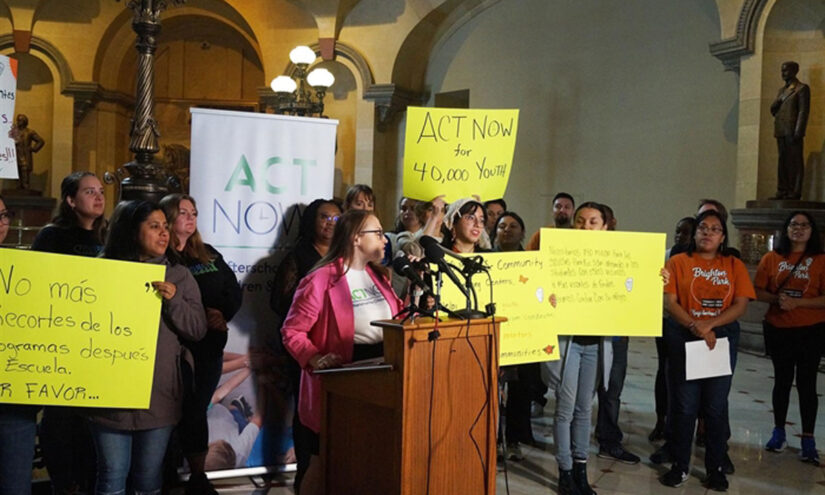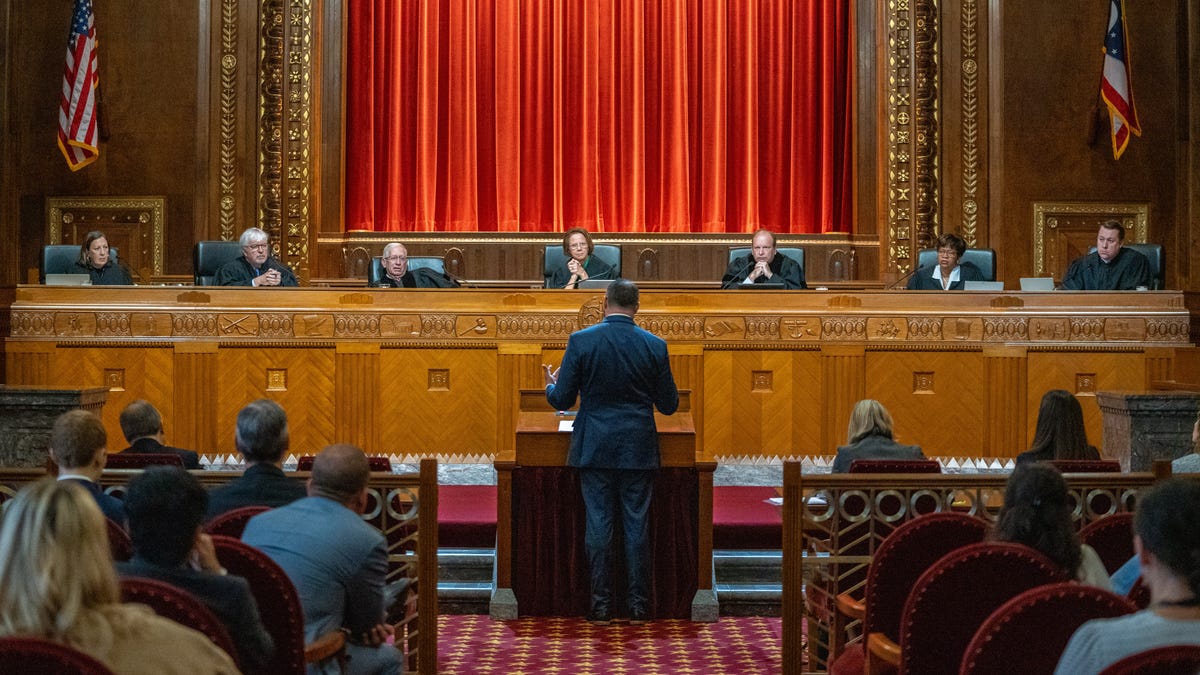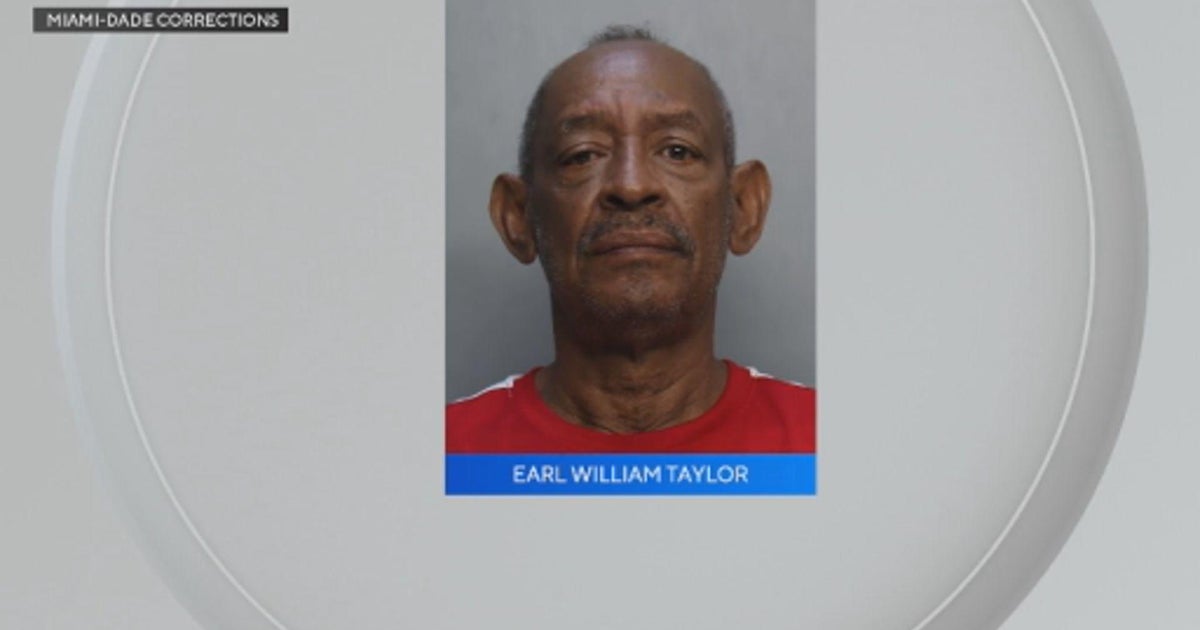Illinois
Illinois man arrested in connection to gunshots in Menomonie

MENOMONIE, Wis. (WEAU) – An Illinois man is in custody after reports of gunshots in Menomonie Friday night.
According to the police department, A Wisconsin State Patrol Trooper told staff with the Menomonie Police Department they heard several gunshots north of the Kwik Trip on 3M Drive in Menomonie around 9:00 p.m. Officers responded to the area and found shell casings on the ground near a semi-truck parked in the semi-truck parking lot. They evacuated others from the area. Officers contacted the driver, 37-year-old Saul Juarez of Illinois, who initially was not cooperative with law enforcement. The Eau Claire County Regional SWAT Team was called in for assistance and law enforcement convinced Juarez to surrender without further incident.
Juarez was arrested and the police department is recommending charges of intoxicated use of a firearm and 2nd degree recklessly endangering safety among others.
Copyright 2024 WEAU. All rights reserved.

Illinois
Thousands Of Illinois Youth At Risk of Losing Access to After-School Programs

Help fund stories like this. Donate now!
SPRINGFIELD – Advocates for community-based after-school programs say as many as 40,000 youths statewide could lose access to tutoring services, recreation and other extracurricular activities this summer unless Illinois lawmakers approve an infusion of funds to keep them going.
“The time is now for legislators to act to save after-school (programs),” Susan Stanton, executive director of Afterschool for Children and Teens, or ACT Now, said at a Statehouse rally Tuesday. “We literally only have weeks left before programs have to shut their doors. Staff will be laid off and families will be in crisis.”
ACT Now is a coalition of groups such as local YMCA chapters, Boys & Girls Club, and other community-based organizations that provide academic enrichment activities and other services during non-school hours for children and teens, particularly those attending high-minority, low-performing schools.
The programs that are at risk receive federal funding through the U.S. Department of Education’s Nita M. Lowey 21st Century Community Learning Centers program.
That money flows through the Illinois State Board of Education, which awards competitive grants to local programs. Those grants are made in three-year or five-year cycles. At the end of that cycle, the grants can either be renewed or the organization can reapply through a new competitive grant process.
The problem facing many programs whose grant cycles are expiring is that in 2023, ISBE miscalculated how much money was available and made commitments to award more grants than the state could fund. As a result, many programs whose grant cycles are expiring cannot get them renewed because there is not enough funding available. Advocates are seeking $50 million in state funding to make up for the anticipated shortfall.
Stanton said programs serving about 6,000 students were forced to close at the end of the previous fiscal year, and without an injection of state funds, another 40,000 students will lose access to services after June 30 this year.
State Sen. Ram Villivalam, D-Chicago, has proposed legislation that would commit $50 million a year in state funds for the 21st Century Community Learning Centers.
“It’s not enough for us to say we support quality, safe and vibrant learning environments for our youth. We have to provide funding for that to happen,” Villivalam said. “I believe … that investing in childhood education is an investment in our future communities, and not something we should take lightly.”
Gov. JB Pritzker’s budget proposal calls for about $234 million for after-school programs, most of which would come from federal money. But Stanton said that is a different program that sends funds for after-school programs directly to school districts, not to the community-based organizations that receive 21stCentury Community Learning Center funding.
Help fund stories like this. Donate now!
Illinois
Paul Vallas: Illinois commission’s new recommendations on university funding don’t address racial inequities

The Illinois Commission on Equitable Public University Funding’s recommendation to allocate additional funding to universities based on race is not only misguided but also ignores the primary cause of inequities in higher education: the lack of school choice at the K-12 level.
This is not surprising, given that the commission was established under Public Act 102-0570 in 2021, with the premise that Illinois higher education is systemically racist and that more funding is the solution.
The commission’s primary goal was always to secure more funding, and it acknowledges that it is building upon the passage of the evidence-based formula in 2017, which changed how K-12 education in Illinois is funded. This formula pushed billions in new funds to local schools based on the notion that schools are underfunded, and that if they were adequately funded, academic success would follow.
The commission’s funding model, like the EBF model, includes a provision that base funding never drops at any university. This provision reduces the pressure to consolidate campuses. The bureaucrats sell this increased funding by wrapping it in equity arguments, asserting that universities cannot address equity issues because they are underfunded.
The State Higher Education Executive Officers Association in a 2022 report ranked Illinois No. 1 for state support for higher education. The report said the state allocated nearly $23,000 in funding per student to its universities for 2022. This is an increase of almost 55% from the 2012 level of $14,975. At No. 2 was Alaska at $18,436. The Illinois commission is asking taxpayers to provide another $1.4 billion in new funding to meet the goals stated in the report.
Page 25 of the commission’s report shows the numbers for one of the equity adjustments in the new funding formula, which incentivizes universities to admit minorities for greater funding. This formula values a Black student at $6,000, a Latino student at $4,000 and a rural student at $2,000.
The evidence presented for systemic racism is based on enrollment numbers and graduation rates by demographic. However, there is no attempt to examine the K-12 preparatory experience of students who graduated or failed to graduate. The commission is silent on the poor performance of public school children statewide.
School choice is welcomed at the higher education level for federal and state student financial aid — more than 54% of students enrolled in private colleges and universities have federal student loan debt. However, school choice is denied at the K-12 level. The Chicago Teachers Union advocates for getting rid of Chicago Public Schools’ charter and magnet schools as well.
National data speaks to the superior performance of minority students who attend charter or private schools. Stanford University’s Center for Research on Education Outcomes tracked public charter outcomes of millions of students, finding that charter schools produce superior student gains; these schools outperform peers in math and reading despite enrolling a more challenging student population.
Private schools have enjoyed extraordinary success. Catholic school students saw the nation’s highest scores on all four National Assessment of Educational Progress exams. When disaggregated by race, Catholic schools have shown significant gains since 2019, leading the nation for Latino achievement on each of the four tests and Black student achievement on three of the tests.
Chicago Archdiocese Catholic schools showed similar results, with students defying the national trend of pandemic-related stagnation and decline in academics. Illinois Policy Institute analysis of Illinois State Board of Education data shows that low-income students in Illinois who received scholarships from the Invest in Kids scholarship program were proficient in reading and math at a higher rate in nearly every grade compared to low-income, public school students in Illinois.
The success of school choice is a story of unique, individualized learning experiences, not one of family wealth or selection bias. The commission’s accusation of systemic racism in the higher education system while ignoring the role of the systematic efforts to deny quality K-12 school choices to poor families, overwhelmingly Black and Latino, is scholarly malpractice.
It’s clear that too few students, disproportionately Black and Latino, are getting the preparation they need to complete a university degree. It’s not the colleges’ fault; it’s the responsibility of our public elementary and secondary schools. The denial of quality education choices at the K-12 level undermines college preparedness.
Throwing more money at the most heavily subsidized university systems in the country and the best-funded K-12 public schools of almost any state in the nation, absent the commitment to improve the situation, will do little to improve equity.
Paul Vallas is an adviser for the Illinois Policy Institute. He has run for Chicago mayor twice and was previously budget director for the city and CEO of Chicago Public Schools.
Submit a letter, of no more than 400 words, to the editor here or email letters@chicagotribune.com.
Illinois
Illinois public officials seek greater oversight of prescription drug 'middlemen'

SPRINGFIELD, Ill. — As state lawmakers hold hearings targeting the role of pharmacy benefit managers – an influential arm in how the health insurance industry prices prescription drugs – multiple state agencies are considering how to better regulate the industry.
Often referred to as pharmaceutical “middlemen,” PBMs act as third-party intermediaries who negotiate the availability and price insurance companies or pharmacies pay for prescription drugs from pharmaceutical manufacturers. In determining the drugs covered by a given employer insurance plan, the companies can ultimately dictate what drugs are available to patients and pharmacies alike.
PBMs have received growing scrutiny on both a state and national level for the effect many claim they have on driving up drug prices. Local pharmacy owners testified at recent committee hearings that they are being squeezed by PBMs through the price of acquiring drugs wholesale and dispensing them, often at no profit or even at a loss. Over 40 percent of local pharmacies in Illinois – about 300 locations – have closed since 2013, according to the National Community Pharmacists Association.
“On almost every brand name medication that you fill, you lose money,” Michelle Dyer, pharmacist and owner of Michelle’s Pharmacy in Macoupin County, told the House Health Care Availability and Access Committee this week.
It was one of multiple recent hearings on the companies, and it followed last week’s review of a scathing audit of the state’s oversight of the industry. In part, the audit from 2023 found state regulators had scant documentation required for effective oversight of PBMs.
Joe Butcher, of the auditor general’s office, told lawmakers on the Legislative Audit Commission that the Illinois Department of Healthcare and Family Services failed to collect documents relevant to state Medicaid spending, which it is responsible for overseeing. Without necessary documents, Butcher said, the state cannot adequately exercise oversight authority.
“HFS was not engaging in monitoring practices of PBMs as mandated by the Illinois Public Aid Code, which establishes several provisions for monitoring PBMs,” he said.
HFS Director Elizabeth Whitehorn, who was appointed in January, said she was not sure how HFS failed to obtain documentation from entities under its watch.
“I don’t want to speak for what the department did or did not do before I was here,” she said. “I don’t know if the department ever asked for the contracts and they were not provided, or if the department simply didn’t ask for them.”
Whitehorn told lawmakers the department will soon file a new rule to help the department supervise PBMs, in part by requiring PBMs to divulge more information about their potential conflicts of interest. That will kick off a rulemaking process through which the department plans to submit the rule by June to the Joint Committee on Administrative Rules.
Corporate consolidation
Many PBMs, part of an industry that launched in the 1960s as prescription drugs became a consistent part of health plans, started as independent companies but were purchased by drug manufacturers in the 1990s.
Three publicly traded PBMs – CVS Caremark, Express Scripts and Optum RX – control about 80 percent of the U.S. PBM market, and the top six companies have over 95 percent, according to the Journal of the American Medical Association.
The state’s newly appointed insurance director, meanwhile, indicated her willingness to help regulate the industry, citing the consolidation of ownership as detrimental to patients. Ann Gillespie, a former CVS Caremark employee, was elevated to insurance director from the Illinois Senate by Gov. JB Pritzker last month.
“Corporate consolidation has exacerbated the situation, turning the existence of independent pharmacies from just a competitive market issue into a health care access issue,” Gillespie said at the House committee hearing Tuesday.
Gillespie also said the Department of Insurance is willing to “design and implement additional regulatory tools” with the General Assembly.
“PBMs have continually sought to evade scrutiny and accountability,” she said. “As legislators and regulators across the country have sought greater transparency, PBMs have also challenged state regulatory authority in the courts, creating additional barriers to stall regulatory efforts.”
Attendees at recent committee hearings referenced House Bill 4548, which aims to change Illinois’ insurance law so state government can better regulate PBMs. Proposed changes include having PBMs disclose the net cost of drugs covered by a health benefit plan, and restricting PBMs from ushering patients toward using pharmacies owned by associated companies.
Last year’s audit recommended consistent monitoring of PBMs, including requiring an annual report, which is outlined in HB 4548. The bill also outlines measures requiring PBMs to pay pharmacies a dispensing fee and reimburse them at a rate equal to the national average drug acquisition cost dictated by Medicaid.
The bill remains in a procedural committee in the House, making it unlikely to pass by the General Assembly’s end-of-May adjournment.
The Federal Trade Commission is also in the midst of an ongoing antitrust probe of six of the largest PBMs, five of which are owned by insurance companies themselves. Last year, the FTC withdrew prior statements of support for PBMs. And at a White House event in March, FTC chair Lina Khan said companies are not cooperating with the probe.
CVS Health, which has the largest share of the market, disputed the claim, according to news reports; but Rep. Natalie Manley, a Joliet Democrat who chairs the Illinois House committee that’s probing PBMs, criticized the lack of attendance by PBM executives at her committee’s first hearing on the industry last month.
“If there were 10 people here from the PBMs, I would put them right here and give you some backup,” Manley told a lobbyist from the Pharmaceutical Care Management Association, a national trade association representing a vast majority of PBMs.
“We need these questions answered, I’m not sure why they’re not here,” she added. “This was their opportunity to answer some of the accusations that are being lobbed at them.”
Only one PBM lobbyist and the president of Vivid Clear RX, a PBM subsidiary of Hy-Vee supermarkets, joined last month’s House committee hearing. One employee from the Blue Cross Blue Shield-owned PBM Prime Therapeutics also eventually testified.
The number of PBMs represented increased at this week’s hearing as another Prime Therapeutics representative and general counsel from Express Scripts joined a trade association lobbyist.
Jennifer Halsey, professor and director of ambulatory pharmacy services at the University of Illinois Chicago, said at last month’s hearing insurance companies are making billions while people in need are unsure if they can afford their prescriptions.
“We continue to see that insurance companies and PBMs make billions of dollars in profit alone every single year, and those profits increase year after year,” Halsey said. “I understand they have shareholders, but how do we make sure that patients have access to care? If we don’t get to the point where the pharmacies are being reimbursed at a reasonable rate, there will no longer be pharmacies for patients to go to.”
Manley said she expects “many more months” of hearings regarding PBMs.
Capitol News Illinois is a nonprofit, nonpartisan news service covering state government. It is distributed to hundreds of newspapers, radio and TV stations statewide. It is funded primarily by the Illinois Press Foundation and the Robert R. McCormick Foundation, along with major contributions from the Illinois Broadcasters Foundation and Southern Illinois Editorial Association.
-

 World1 week ago
World1 week agoStrack-Zimmermann blasts von der Leyen's defence policy
-

 Politics1 week ago
Politics1 week agoThe White House has a new curator. Donna Hayashi Smith is the first Asian American to hold the post
-

 Politics1 week ago
Politics1 week agoStefanik hits special counsel Jack Smith with ethics complaint, accuses him of election meddling
-

 Politics1 week ago
Politics1 week agoDemocratic mayor joins Kentucky GOP lawmakers to celebrate state funding for Louisville
-

 World1 week ago
World1 week agoTurkish police arrest hundreds at Istanbul May Day protests
-

 News1 week ago
News1 week agoVideo: Police Arrest Columbia Protesters Occupying Hamilton Hall
-

 Politics1 week ago
Politics1 week agoNewsom, state officials silent on anti-Israel protests at UCLA
-

 News1 week ago
News1 week agoPolice enter UCLA anti-war encampment; Arizona repeals Civil War-era abortion ban



















